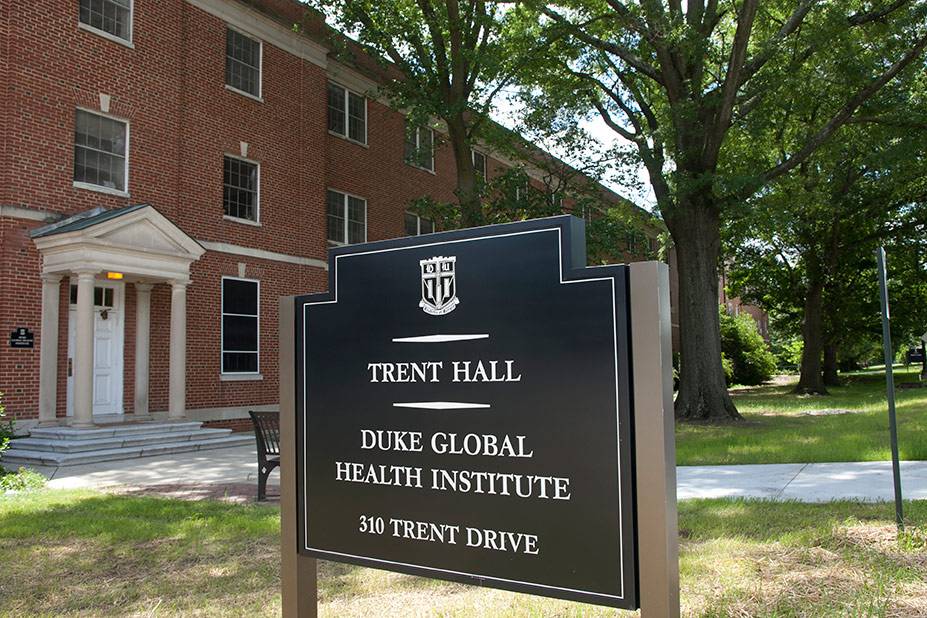New Research And Policy Center To Address Future Of Financing Global Health
Financing gaps threaten a universal reduction in preventable deaths, says director Gavin Yamey

A new policy lab opening today at the Duke Global Health Institute will address financing solutions aimed at improving the health of the world’s poor.
Specifically, the Center for Policy Impact in Global Health will focus on three significant gaps in global health financing:
- A gap in donor financing for research and development for poverty-related and neglected diseases, and for other “global functions” of health aid, such as pandemic preparedness. Global functions of aid are those that tackle issues that transcend national borders. Donor financing for health has flat-lined in recent years and too little of it has been directed at these global functions.
- A “middle-income gap,” which arises when countries cross an income threshold and no longer qualify for health aid. Most of the world’s poor now live in pockets of poverty in middle-income countries, and the middle-income gap results in major health disparities in these countries.
- A domestic health financing gap in low- and middle-income countries. Many of these countries are investing too little in health, are not getting good value for money in their health spending, and are relying on people paying for health care out of pocket -- a major cause of household poverty.
“Taken together, these gaps threaten the achievement of a universal reduction in preventable deaths,” said Gavin Yamey, a professor of global health and public policy who will lead the new center. Yamey is one of the authors of The Lancet’s landmark “Global Health 2035” report.
“The mission of the center is to provide evidence and independent policy analyses to quantify these gaps and develop policy solutions to overcome them.”
The center’s first projects will include estimating the annual cost to develop the most crucial medicines, vaccines, diagnostics and other global health technologies; developing policy options for funding such product development; and partnering with selected low- and middle-income country governments to find ways to mobilize additional health spending and direct it at the highest impact health interventions.
“The Center for Policy Impact in Global Health is an important and timely addition to our institute. It will address a critical area of global health -- the future of financing -- and in so doing, will undoubtedly help to advance the field and make significant progress toward achieving the United Nations’ Sustainable Development Goals,” said Michael Merson, director of the Duke Global Health Institute.
“Duke is already a powerhouse in global health and policy,” said Yamey, “so we are pleased to play to our strengths by collaborating with the Duke Center for International Development and its new leader, Indermit Gill, and the Margolis Center for Health Policy, and its leader Mark McClellan.”
Gill came to Duke from the World Bank and McClellan from the Brookings Institution. He was previously commissioner of the U.S. Food and Drug Administration and served as administrator of the Centers for Medicare and Medicaid Services.
Innovative policy approaches, deep engagement with policy makers and international collaboration will be at the heart of the center’s work. The center will also collaborate with the Duke Center for International Development and the university’s Margolis Center for Health Policy.”
In its first year, the center will receive expert guidance from an international group of advisers, chaired by Lawrence Summers, former U.S. Treasury Secretary and president emeritus and Charles W. Eliot University Professor of Harvard University.
Its key research partners will be the Evidence to Policy initiative in the Global Health Group at the University of California, San Francisco; SEEK Development, a global health and development consulting group in Berlin; and AidData, based at the College of William and Mary, Williamsburg, Virginia.
The center and its director have received funding for its analytic work and policy engagement from the Bill & Melinda Gates Foundation, the Qatar Foundation, the Global Health Technologies Coalition, the University of Washington, and the Duke Global Health Institute.
For more information about the center, visit http://centerforpolicyimpact.org.